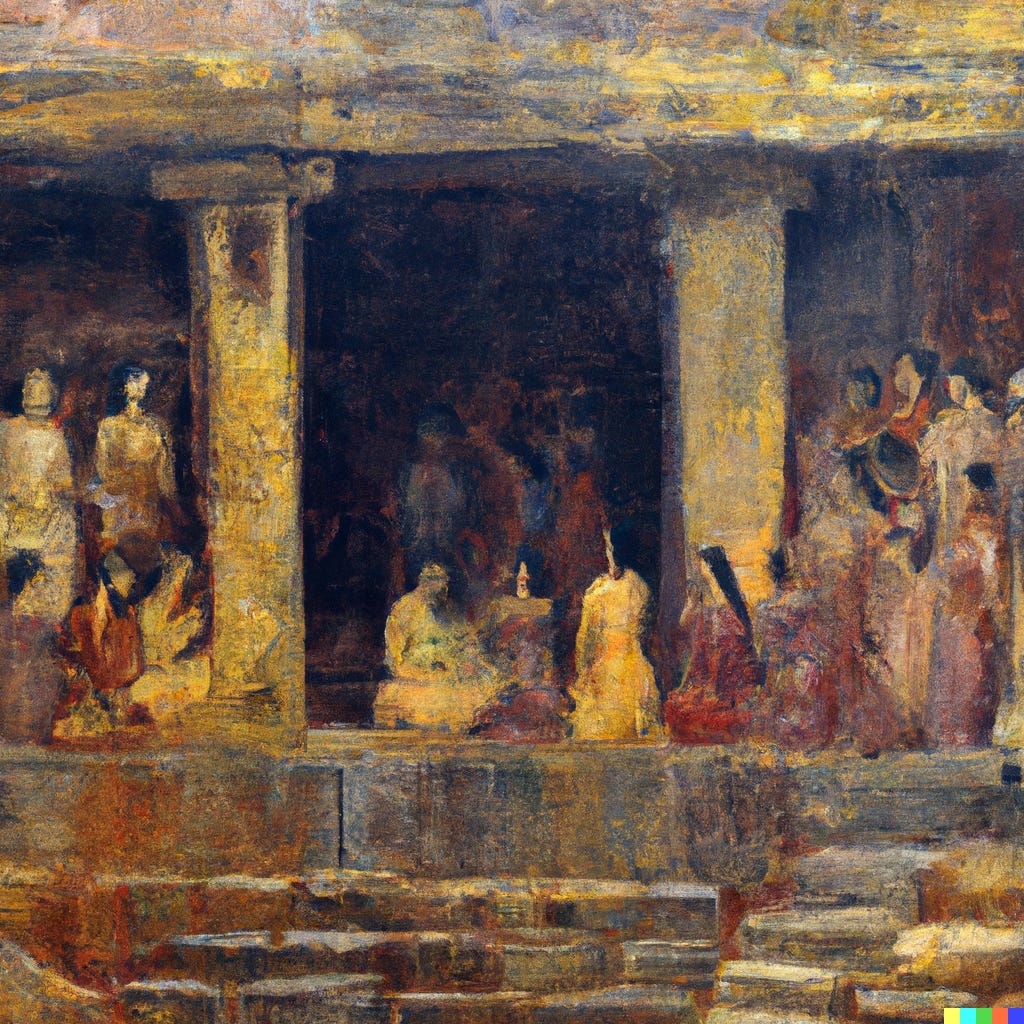#52 A Personal Evolution, Orientalism & Nalanda Mahavihara
Until the lion tells the story, the hunter will always be the hero - African Proverb
As I've grown older, I've found joy in simple things like hitting the gym, maintaining a healthy diet, and contributing to Bohemian Dialogue. Writing for the Bohemian Dialogue feels like a peaceful endeavor, and I view the ability to write, read, prioritize health, and eat well as a superpower. If you've been following my journey, you've likely noticed that Bohemian Dialogue aims to guide individuals in discovering history, literature, and the essence of life.
My exploration of history, particularly native history, has greatly influenced my personal growth, fostering responsibility and humility. While I initially shared what brings me happiness, it's crucial to acknowledge that this isn't solely my own luxury. I'd be too arrogant not to recognize the blessings from my family, friends, teachers, colleagues, and bosses. Furthermore, I mustn't forget the resilience of my ancestors and their sacrifices, considering my roots in a place that has endured countless invasions throughout history.It’s important to read the history and It’s even more important to make peace with it.
Delving into the pages of history unveils the profound impact of orientalism on our society. It always pains me to read about the erosion of oral storytelling, with its rich aesthetics and intricate details, in our country. As I trace back to ancient India, I uncover the marvel that was Magadha, home to the world's first residential university—Nalanda Mahavihara: The Greatest Centers of Learning in the Ancient World,
Xuanzang, a Chinese Buddhist monk, scholar, traveler, and translator from the 7th century, undertook a journey across India from 630 to 643 CE. His travels included visits to Nalanda in 637 and 642, where he stayed for approximately two years at the monastery. Nalanda warmly welcomed him, and during his time there, he was given the Indian name Mokshadeva. Under the guidance of Shilabhadra, the esteemed head of the institution, Xuanzang pursued his studies. He considered his challenging overland journey to India a success, as he had finally found an unparalleled teacher in Shilabhadra who instructed him in Yogachara, a school of thought that was only partially known in China at that time. In addition to Buddhist studies, Xuanzang attended classes in grammar, logic, and Sanskrit, and later, he also delivered lectures at the Mahavihara.
At Nalanda, there exist a grand library, a repository of untold wisdom and despite it’s destruction, the lingering question remains—what knowledge could it have unveiled if preserved to this day?


